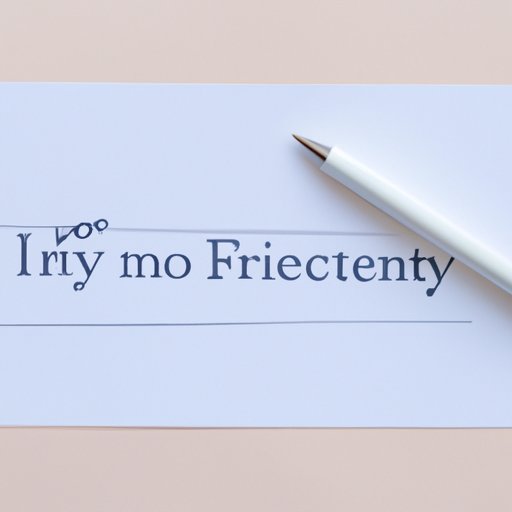Introduction
Getting pregnant is a significant step in many couples’ lives. When you’ve been on birth control for an extended period, stopping can raise some questions regarding when you can conceive. While some couples may get pregnant as soon as they stop using birth control, others may have to wait for months or even a year. This article is intended for anyone who’s wondering how long after birth control they can get pregnant.
The Biology of Getting Pregnant after Birth Control
The type of birth control you use can have an impact on how quickly your fertility returns. Hormonal methods of birth control, such as the pill, patch, or shot, work by preventing ovulation. When you stop using these methods, it can take some time for your body to begin ovulating again. In contrast, non-hormonal methods such as condoms and copper IUDs do not directly affect fertility, so your chances of getting pregnant can return to normal as soon as you stop using them.
Several factors determine how long it can take for fertility to return after stopping birth control. The most significant factors are the type of birth control you used and how long you’ve been on it. If you used hormonal birth control for a long time, it may take longer than someone who only used it for a short period.
How Long After Birth Control to Wait Before Trying to Conceive
The timeline for returning fertility after stopping birth control varies among individuals. However, it’s generally recommended that you wait for at least one normal menstrual cycle before trying to conceive. This gives your body time to readjust to its natural hormonal rhythm and can help you better track your ovulation cycle. In some cases, it may take a few more months for your cycle to return to normal after stopping birth control.
If you’ve been using Depo-Provera, a birth control shot taken every three months, it can take up to six months or more before you start ovulating again. Therefore, it’s vital to discuss the timing of conception with your healthcare provider.
Post-Pill Pregnancy Planning
When stopping hormone-based birth control, there might be some side effects, including irregular periods and hormonal imbalances, which can cause acne, mood changes, and weight fluctuations. However, most of these side effects will subside with time. Before trying to conceive, it’s recommended that you take multivitamin and folic acid supplements to help prepare your body.
Preparing your mind and body for pregnancy is essential. Try incorporating fertility-boosting foods and exercises into your routine and reducing stress. Speak with your healthcare provider about preconception counseling to ensure you’re in the best state to conceive.
Overcoming Fertility Roadblocks After Birth Control
After stopping birth control, some couples may find it is taking longer than expected to conceive. It’s crucial to stay patient and be patient with your body. Every couple’s fertility journey is unique and may face challenging situations, like irregular menstrual cycles, underlying medical conditions, including PCOS, endometriosis, and more.
To overcome the challenges when trying to conceive, seeking medical advice from a fertility specialist is advisable. There may be some medicines or treatments recommended specific to your needs. Also, staying healthy overall with a well-balanced diet, regular exercise, and maintaining a healthy weight will positively impact fertility and conception.
Staying Healthy and Fertile After Coming Off Birth Control
To increase your chances of pregnancy, adopting a healthy lifestyle is highly beneficial. Regular exercise, a diet rich in nutrients, dairy products, lean protein, fruits, and veggies, and drinking plenty of water each day is recommended.
Minimizing particular non-healthy habits like smoking, drinking alcohol or caffeine, and illegal drugs are highly recommended pre-conception to ensure optimal health and opportunities for conception. The healthier you and your partner are, the greater your chances for a positive conception outcome.
Making the Transition from Birth Control to Baby-Making
The transition from using birth control to trying to conceive is an exciting time. However, it can also be stressful and emotional. It’s crucial to set realistic expectations, practice open communication with your partner and seek emotional support when needed.
Your healthcare provider can offer guidance and support throughout the journey. Counseling, self-help books or partnering with a fertility coach are great options to get the emotional support and guidance needed for the challenges you may face on the path to conception.
Conclusion
In conclusion, conception is a unique journey for every couple. When trying to conceive after stopping birth control, it’s essential to take necessary preparations and not get discouraged. Your body will get back to natural rhythm eventually. Stay patient and continue to practice healthy habits. We hope this article has been helpful in answering your questions on how long after birth control you can get pregnant. Remember, seek professional advice from your healthcare provider to ensure a successful conception journey.
(Note: Is this article not meeting your expectations? Do you have knowledge or insights to share? Unlock new opportunities and expand your reach by joining our authors team. Click Registration to join us and share your expertise with our readers.)
